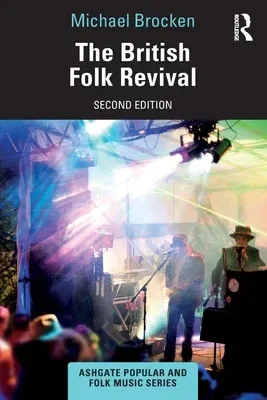Michael Brocken
(Author)The British Folk RevivalPaperback, 26 August 2022

Qty
1
Turbo
Ships in 2 - 3 days
Only 2 left
Free Delivery
Cash on Delivery
15 Days
Free Returns
Secure Checkout

Part of Series
Ashgate Popular and Folk Music
Print Length
248 pages
Language
English
Publisher
Routledge
Date Published
26 Aug 2022
ISBN-10
0367766876
ISBN-13
9780367766870
Description
Product Details
Author:
Book Format:
Paperback
Country of Origin:
US
Date Published:
26 August 2022
Dimensions:
23.39 x
15.6 x
1.37 cm
ISBN-10:
0367766876
ISBN-13:
9780367766870
Language:
English
Location:
Oxford
Pages:
248
Publisher:
Weight:
362.87 gm